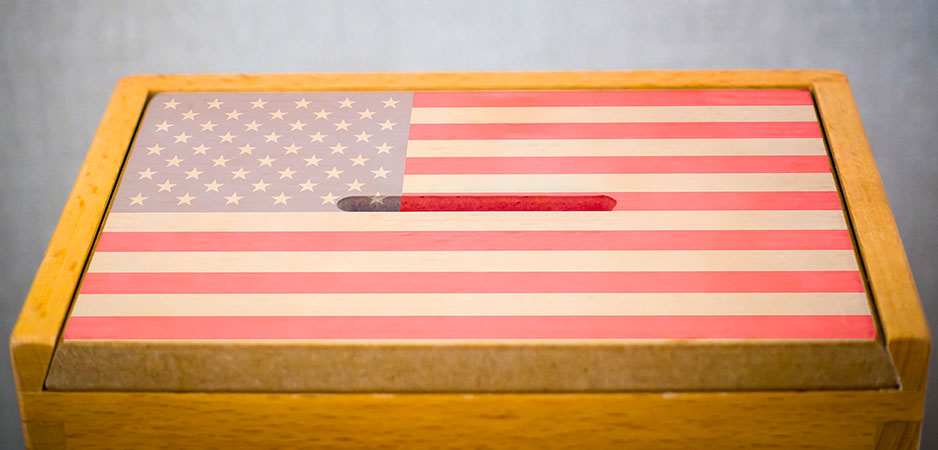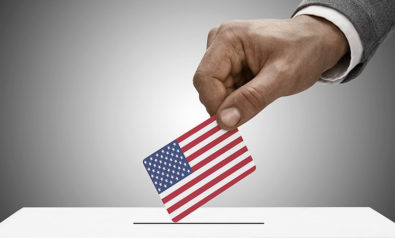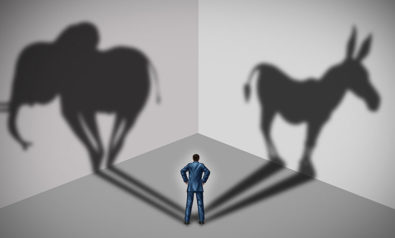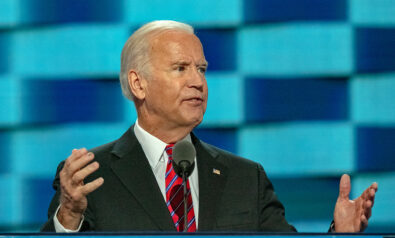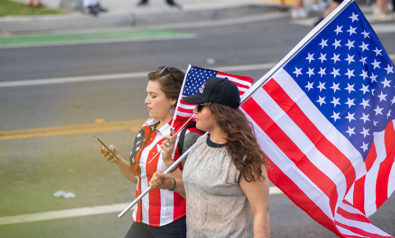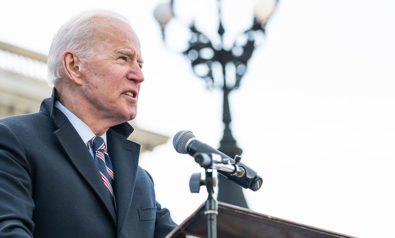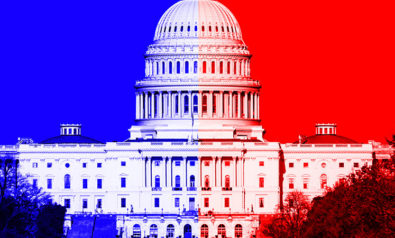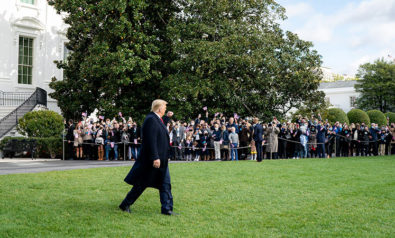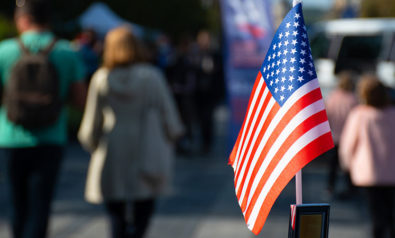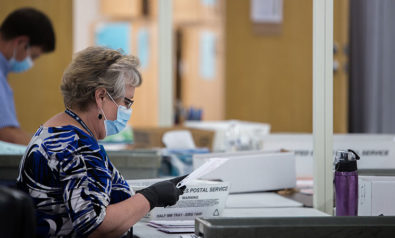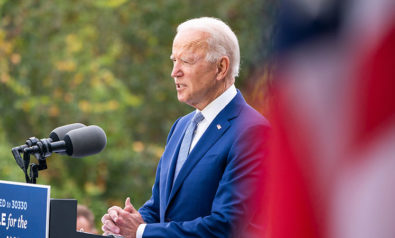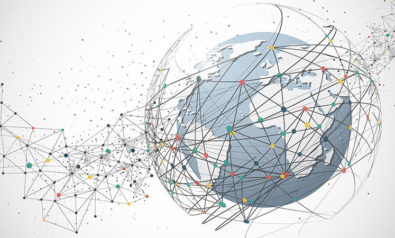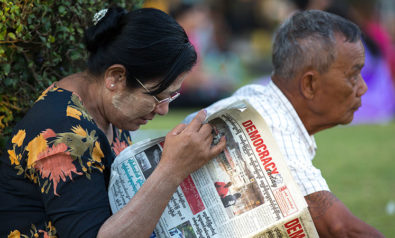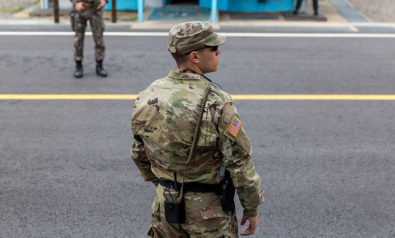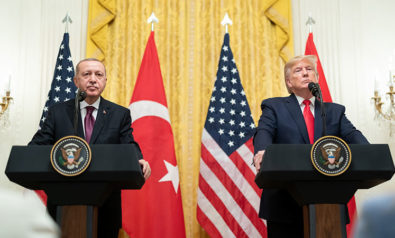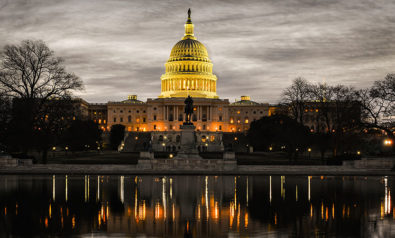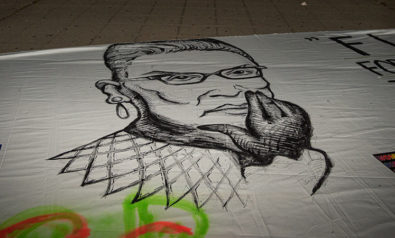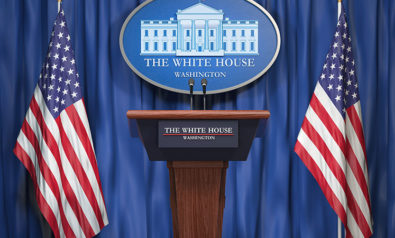In the United States, trans and non-binary people’s voting rights are under threat from strict photo ID laws or harassment at polling stations. As November 3 approaches, the impact of such restrictions looms large for the status of the country’s democracy. To have credible democratic elections, they must be free from discrimination, particularly regarding the ability of historically marginalized groups to participate. It is essential that steps are taken to mitigate this impact in the next two weeks and that changes are made for future elections.
360˚ Context: The 2020 US Election Explained
In the US, 36 states have voter ID laws, with 18 of those requiring a photo ID; notably in North Carolina and Pennsylvania, strict photo voter ID laws were recently struck down. These ID laws significantly affect transgender voters who may have difficulty obtaining an ID that accurately reflects their name, gender and appearance. As a result, transgender citizens with identification documents that do not match their gender may be turned away at the polls. By some estimates, approximately 42% of eligible transgender voters do not have identification documents that reflect their name and gender.
Disenfranchisement
When it is permitted, the administrative process of updating voter identification cards can also be onerous and involve significant financial and administrative hurdles for trans people, discouraging voting. At least 14 states have burdensome requirements to alter the gender section on IDs, including a court order, proof of gender-affirming surgery or an amended birth certificate. This is despite the fact many trans people do not want, cannot access or afford surgery or other gender-affirming care. In addition, as a result of the COVID-19 pandemic, a lot of gender-affirming procedures have been put on hold as non-emergency care and surgeries are postponed.
These requirements potentially disenfranchise hundreds of thousands of trans citizens. The UCLA Williams Institute notes that “In the November 2020 general election, over 378,000 voting-eligible transgender people may face barriers to voting due to voter registration requirements and voter ID laws, including 81,000 who could face disenfranchisement in strict photo ID states.” These difficulties have only been exacerbated by the pandemic when courts and the Department of Motor Vehicles offices closed across the country for weeks, hindering the process of updating identification documents.
Of course, the potential for disenfranchisement is even higher for transgender people facing other vectors of oppression related to their race, criminal history, ethnicity, age, income or ability. For instance, as Human Rights Watch notes, the practice of disenfranchising felons and of removing inactive voters from the rolls can disproportionately affect transgender voters who experience housing insecurity and incarceration — often due to the criminalization of HIV transmission or sex work — at higher rates.
Transgender people also often face harassment and discrimination at the polls, even from poll workers. Human Rights Campaign found in 2019 that fear of discrimination has led “49 percent of transgender adults, and 55 percent of trans adults of color to avoid voting in at least one election in their lives.” This fear is not without basis. The Williams Institute also found that after presenting inaccurate IDs at a polling station, many experience voter suppression: “Respondents reported being verbally harassed (25%), denied services or benefits (16%), being asked to leave the venue where they presented the identification (9%), and being assaulted or attacked (2%).”
Ensuring Equal Access to Suffrage
Access to suffrage, regardless of gender identity, is fundamental to democracy, and all undue constraints on who can vote should be eliminated. While the responsibility this November will, unfortunately, fall primarily on trans and non-binary voters to create a voting plan that may include voting by mail when possible, it is the state’s responsibility to ensure equal access for these communities.
Across the globe, there are models on which to base reform. In several countries such as Argentina, Colombia and Denmark, citizens can self-determine their gender on their IDs. In Malta, there is also an “X” or third gender/decline-to-state option for passports. Having this third option is extremely important for including trans and non-binary voters, yet in the US, only 19 states and the District of Colombia allow residents to select a non-binary option on their driver’s licenses. Further, changing one’s gender on an identification card should not require proof of medical intervention and should be based solely on self-identification.
In addition to these longer-term reforms, there are also opportunities to prevent discrimination against trans and non-binary voters in this electoral cycle. Advocacy groups should continue to encourage members of the LGBTQ+ community to become poll workers. Simultaneously, the government should train all poll workers on interacting with transgender and non-binary voters and ensuring that they are not denied a ballot. Notably, voters can also report any intimidation at the polls to the nonpartisan Election Protection Coalition at 866-OUR-VOTE. These steps can ensure that members of these communities will feel safe going to the polls and making their voices heard.
The views expressed in this article are the author’s own and do not necessarily reflect Fair Observer’s editorial policy.
Support Fair Observer
We rely on your support for our independence, diversity and quality.
For more than 10 years, Fair Observer has been free, fair and independent. No billionaire owns us, no advertisers control us. We are a reader-supported nonprofit. Unlike many other publications, we keep our content free for readers regardless of where they live or whether they can afford to pay. We have no paywalls and no ads.
In the post-truth era of fake news, echo chambers and filter bubbles, we publish a plurality of perspectives from around the world. Anyone can publish with us, but everyone goes through a rigorous editorial process. So, you get fact-checked, well-reasoned content instead of noise.
We publish 2,500+ voices from 90+ countries. We also conduct education and training programs
on subjects ranging from digital media and journalism to writing and critical thinking. This
doesn’t come cheap. Servers, editors, trainers and web developers cost
money.
Please consider supporting us on a regular basis as a recurring donor or a
sustaining member.
Will you support FO’s journalism?
We rely on your support for our independence, diversity and quality.


